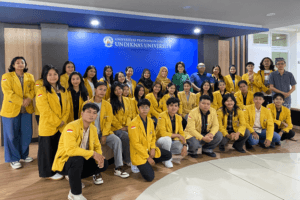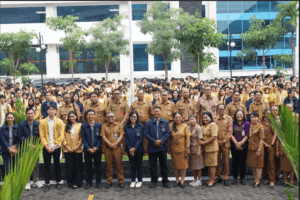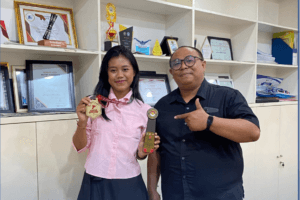
BEM-FEB UNDIKNAS Holds Economy Social Activity (ESA) in Buahan Village: Realizing SDGs Through the Utilization of Medicinal Plants
Gianyar – Universitas Pendidikan Nasional (Undiknas), through the Student Executive Board of the Faculty of Economics and Business (BEM-FEB) Undiknas, in collaboration with the Student Representative Council (BPM-FEB) Undiknas, successfully held their annual social work program, Economy Social Activity (ESA), in Buahan Village, Payangan District, Gianyar Regency. This activity is a tangible form of concern for others and an effort to realize the Tri Dharma of Higher Education, particularly in the fields of teaching and community service. (April 6, 2024)
Under the theme “Empowering Village Communities: Advancing SDG’s through Medicinal Plants (TOGA) Implementation,” the activity aimed to provide insights into the management of natural resources and to explore the potential of Buahan Village. The program was structured around two main elements: development and education, which were organized into two series of activities: community socialization and practical activities.
The event began at 8:30 AM WITA with a report from the committee chairperson and remarks from the Governor of BEM-FEB and the Head of Buahan Village. This was followed by a speech from Putu Sri Arta Jaya Kusuma, S.E., M.Si., QWP., CFP., ACPA., CTA., CIB., Vice Dean of Human Resources and Student Affairs at FEB UNDIKNAS, who then officially opened the event.
After the opening, the activities continued with two simultaneous community socialization sessions. The first session at the Buahan Banjar Hall was led by Ir. Anak Agung Ngurah Mayun Wirajaya, MM., who presented on “Utilization of Family Medicinal Plants (TOGA).” This session was attended by students, lecturers, and representatives from five Kelian Banjar and PKK members from each banjar.
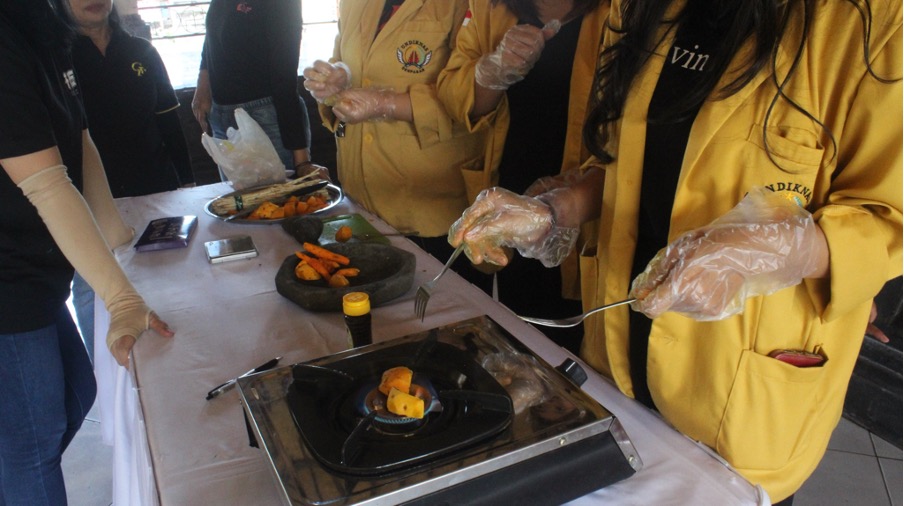
The second session took place at the Buahan Village Head Office with speaker Gusi Putu Lestari Permana, S.E., M.Acc., Ak., who delivered a presentation on “Village Development Based on Sustainable Development Goals (SDGs).” This socialization was attended by all village officials.
Following the socialization, the activities continued with the practical planting of medicinal plants, known as TOGA, which are commonly found in home gardens, and the processing of TOGA into herbal medicine. Students were divided into 17 groups, with 15 groups planting at residents’ homes, one group planting at Puspa Aman, and one group making herbal medicine. The types of TOGA planted included cat’s whiskers, curcuma, and centella, while the herbal medicine making was carried out at the Buahan Banjar Hall.
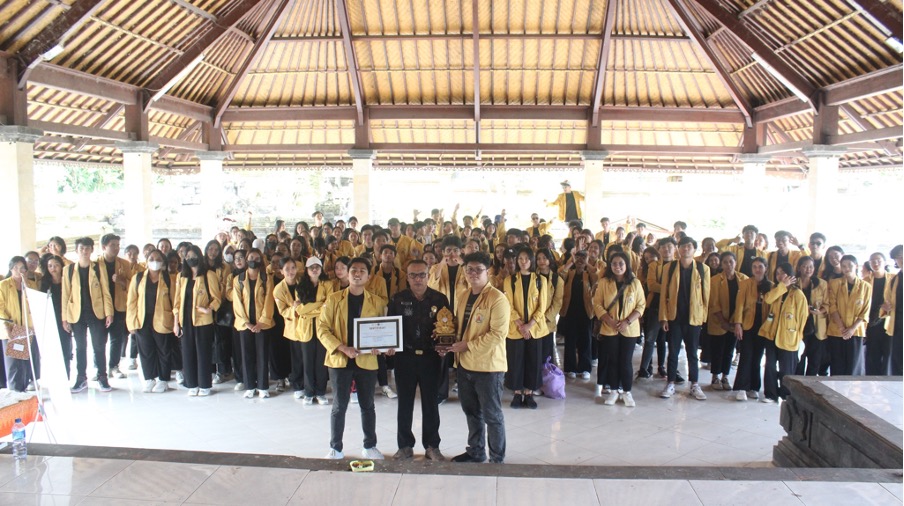
The Economy Social Activity (ESA) is closely related to several pillars of the Sustainable Development Goals (SDGs), particularly SDG point 3 on good health and well-being. Through the planting and processing of TOGA into herbal medicine, this activity supports community health by promoting the use of family medicinal plants. This helps improve the health and well-being of Buahan Village residents sustainably. Furthermore, SDG point 4 on quality education is addressed by providing education to the community on natural resource management and the use of TOGA, as well as educating students through hands-on field experience. Thus, this activity contributes to improving the quality of education through experiential learning.
It is hoped that the implementation of the Economy Social Activity (ESA) program can continue and provide sustainable benefits for the Buahan Village community, as well as inspire similar activities elsewhere.

